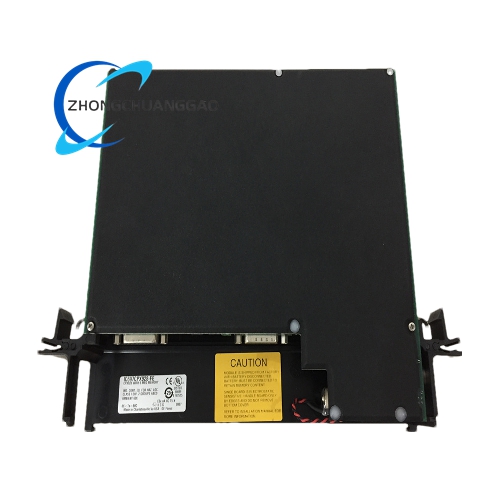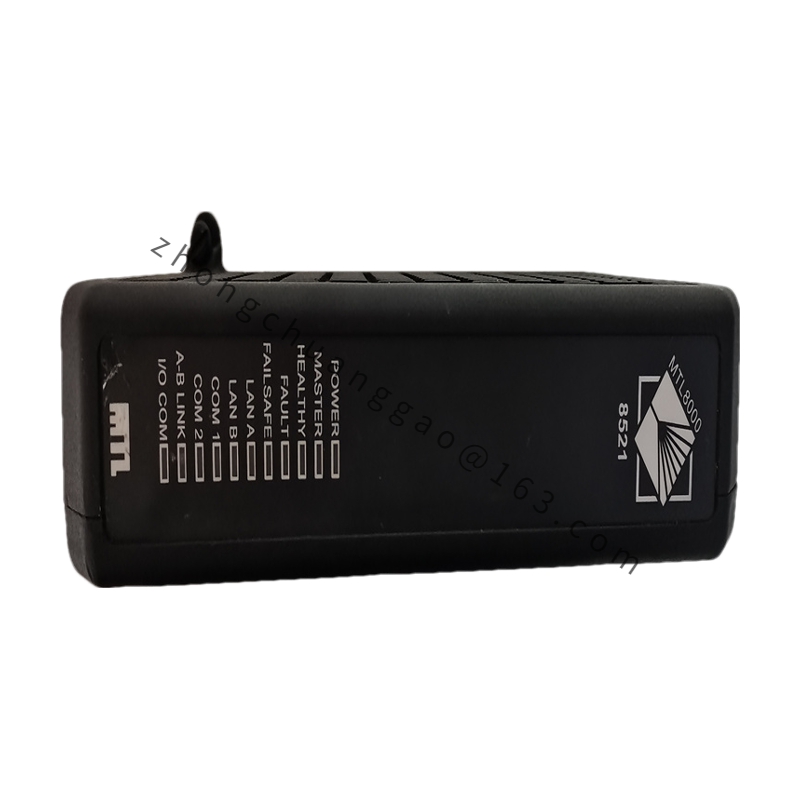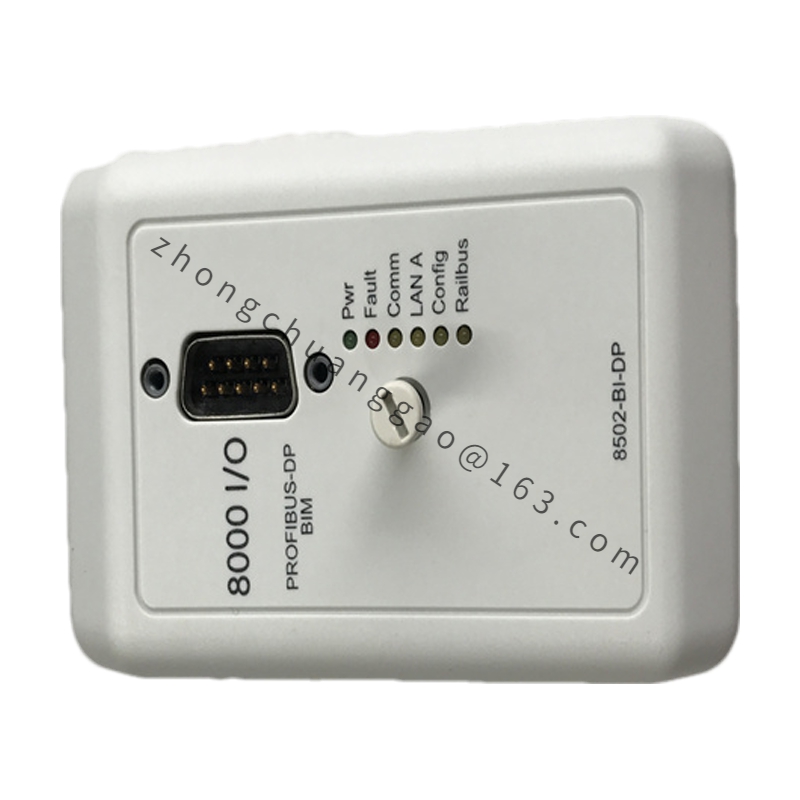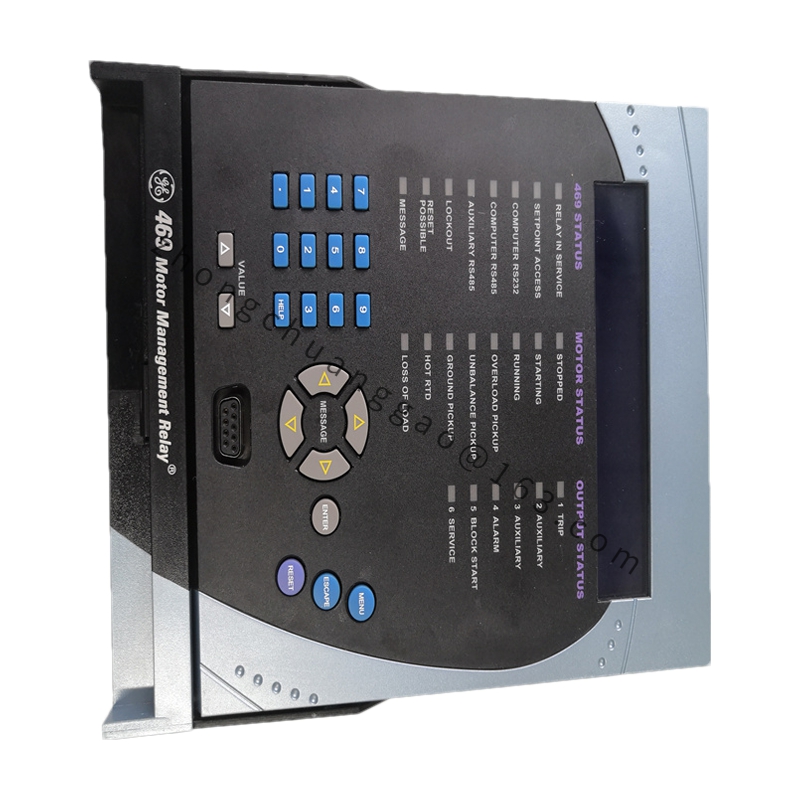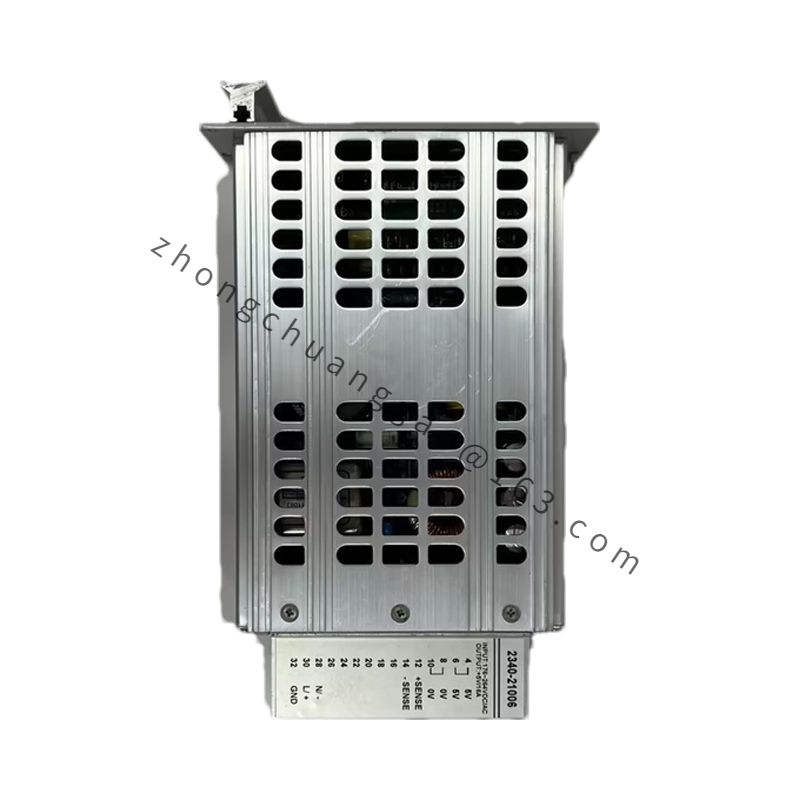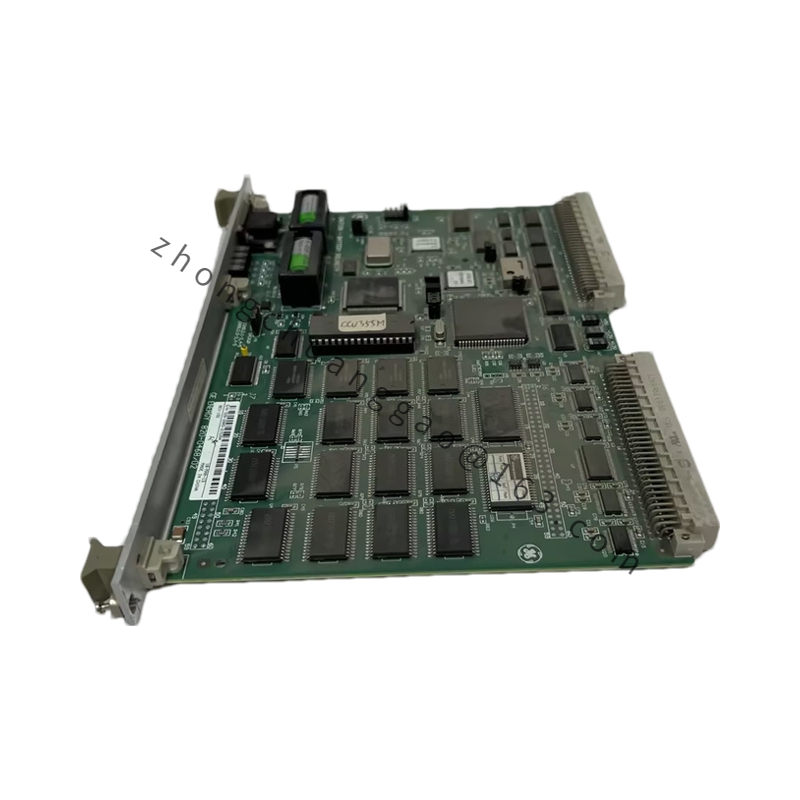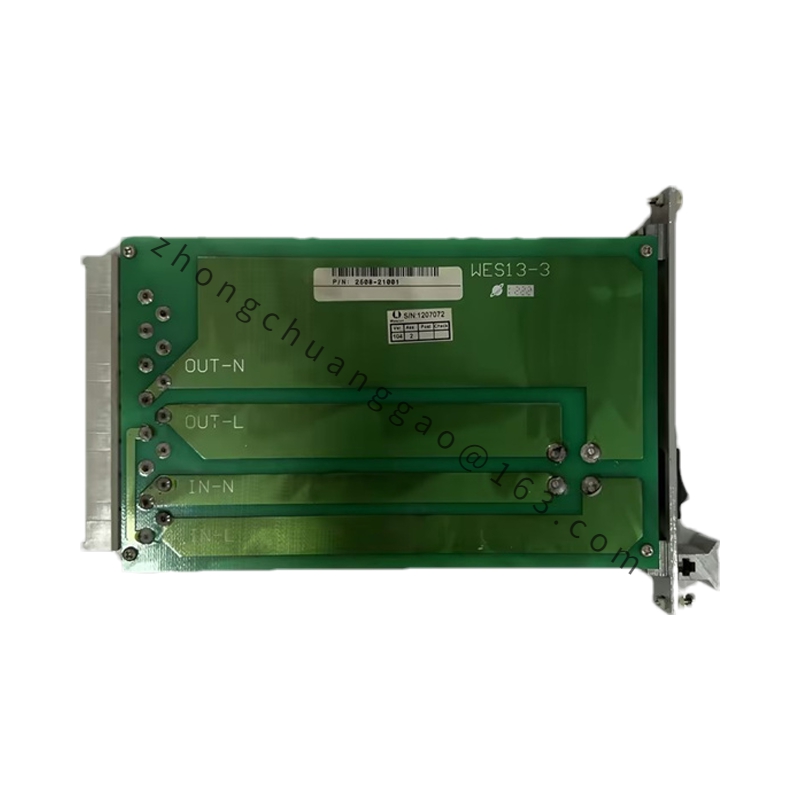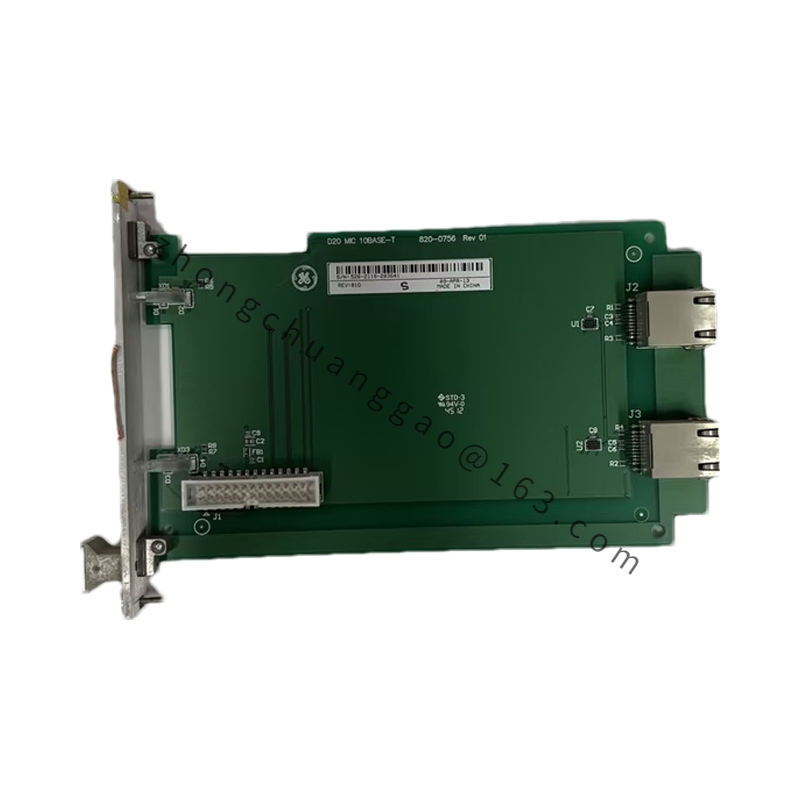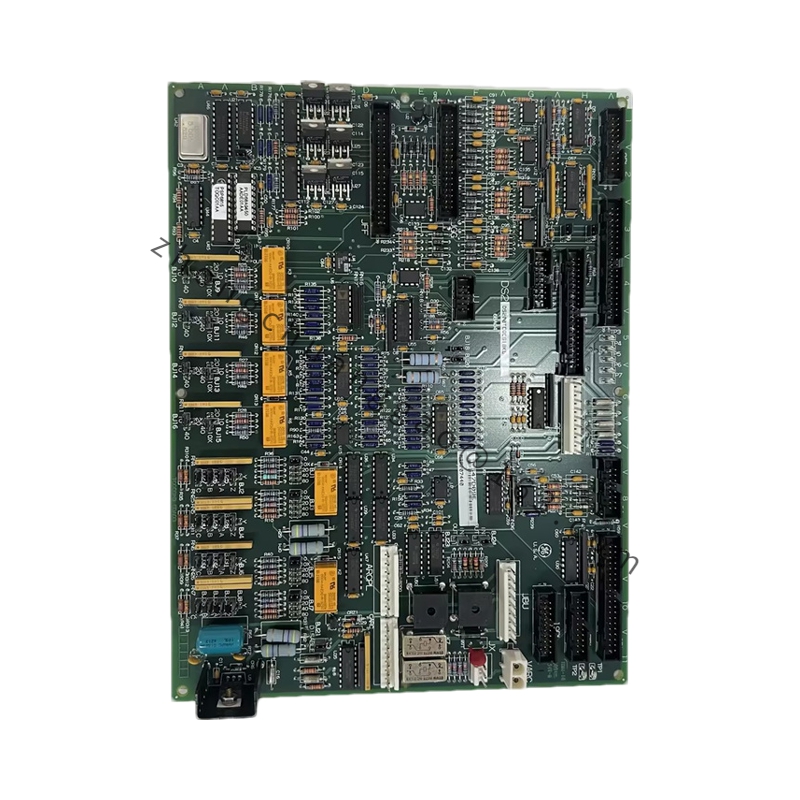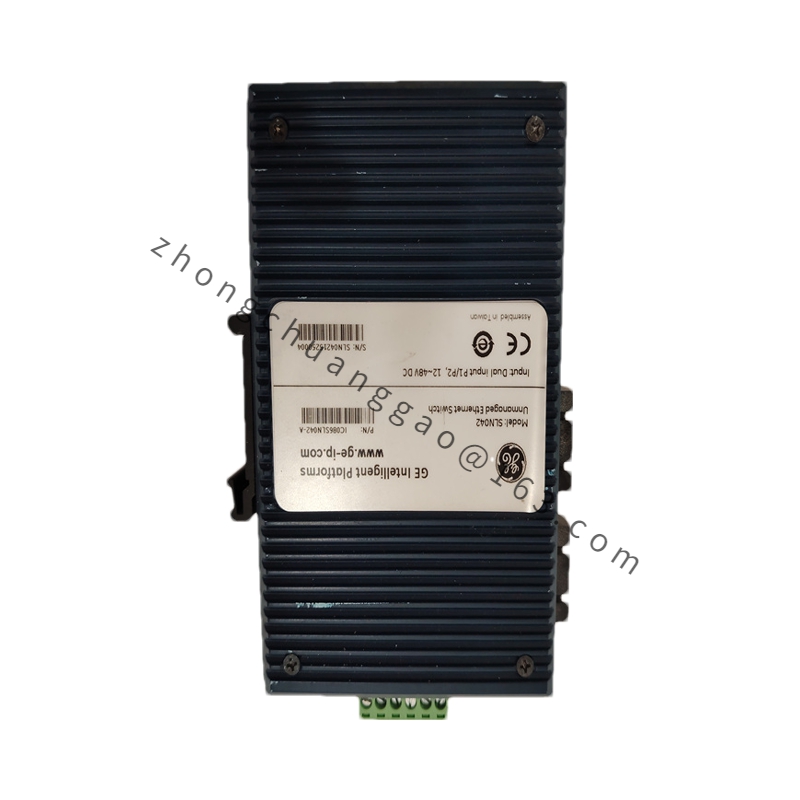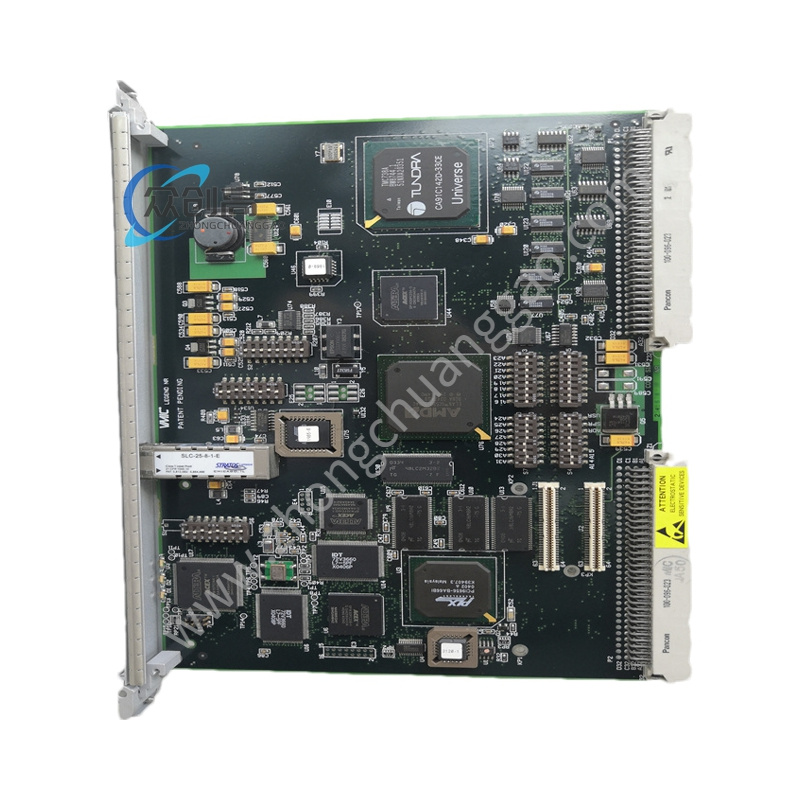GE IC698CPE020-JR
Product Introduction
- Manufacturer: Currently under Emerson Automation, formerly produced by GE Intelligent Platforms (GE IP).
- Series: PACsystem RX7i.
- Type: Rack – mounted CPU module.
- Function: It is the “brain” of the control system, responsible for program execution, data processing, and system management.
Detailed content
Technical Specifications
- Processor: Equipped with a 700 MHz Pentium III microprocessor.
- Memory Configuration
- Program Memory: 10 MB (battery – backed user memory).
- Data Memory: 10 MB (non – volatile flash user memory).
- Communication Interfaces
- Ethernet Ports: 2 ports (10/100 Mbps), supporting industrial Ethernet protocols such as Modbus TCP, EtherNet/IP, etc.
- Serial Ports: 2 isolated serial ports supporting RS – 232 and RS – 485 standards, and 1 RS – 232 station manager port.
- Boolean Execution Speed: 0.14 ms per 1000 boolean contacts/coils.
- I/O Capacity
- Discrete I/O: 32 kbits for discrete (%I) and (%Q).
- Analog I/O: Configurable up to 32 kwords each for analog (%AI) and (%AQ).
- Power Requirements
- +5 VDC: 4.5 amps nominal.
- +12 VDC: 0.042 amps nominal.
- -12 VDC: 0.008 amps nominal.
- Operating Temperature Range: 0°C – 60°C (running), – 40°C – 85°C (storage).
Functional Characteristics
- Multiple Programming Languages: Supports programming in ladder diagram, C, structured text, and function block diagram, in line with the IEC 61131 – 3 standard.
- Symbolic Variable Support: Supports auto – located symbolic variables that can use any amount of user memory.
- Test Edit Mode: Allows users to easily test modifications to a running program.
- Data Monitoring: Supports web – based data monitoring, allowing a combined total of up to 16 web server and FTP connections.
- Redundancy Support: Can be configured as a dual – machine hot – standby (Redundant CPU) mode (with redundant backplane and redundant power) to achieve seamless fault switching.
Application Scenarios
- Manufacturing Industry: Used in production lines for real – time control of industrial machinery, such as in the control of complex motion systems, high – speed packaging machines, and injection – molding machines.
- Energy Industry: Suitable for power plant automation and power distribution automation, such as monitoring and controlling the operation of generators and substations.
- Process Control Industry: In industries like chemical and pharmaceutical, it is used for process control, such as monitoring and adjusting the concentration, pH value, and other parameters in chemical reactions.
- Water Treatment Industry: Can be used for sewage treatment automation, water quality monitoring, and the automation control of water treatment equipment.

